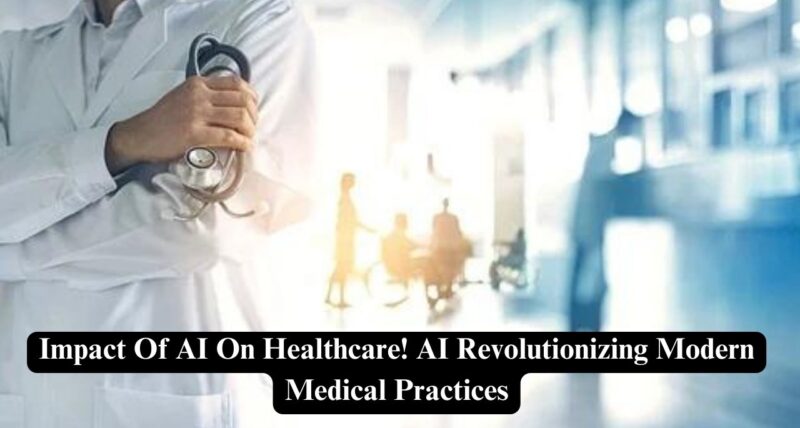AI, over the years, has evolved, and still, there is a lot to cover! Amidst the hustle, anything but the healthcare sector has gained proper support. It offers adequate solutions to all the problems. AI is redefining the healthcare sector by enhancing patient outcomes, treatment, and diagnosis. Without requiring direct human input, it can evaluate complicated medical data, improving treatment methods and increasing productivity. AI is already used to create individualized treatment plans for patients, identify and diagnose illnesses, and administer the best possible care.
The Impact Of AI On Healthcare—A Detailed Overview

Artificial intelligence so far has been a great promise for the study of psychology, cancer, ophthalmology, dermatology, and surgical systems. It does help with drug adherence and distinguish between healthy and depressed people. AI is also being utilized in surgery to lower the possibility of human mistakes.
Pharmaceutical Research And Manufacturing
AI offers relevant help to discover promising candidates, evaluate massive datasets, and forecast pharmacological features. It does cut down the time and expense associated with drug research and development. Additionally, it helps with customized medicine by finding biomarkers and assisting in the creation of medications for uncommon diseases.
Prompt Sickness Detection And Remedy
Scientists at TU Dresden came up with an implanted artificial intelligence platform that is biocompatible. It can identify pathological changes instantly, even in the absence of medical care. With an accuracy rate of 88%, the chip can distinguish between normal heartbeats and typical arrhythmias. Scientists have created organic mixed conductors. They solve challenging categorization problems in real-time by fusing contemporary electronics with biology.
Clinical Data Gathering And Digital Medical Files
AI-enabled electronic health records (EHRs) can significantly benefit the healthcare sector by enabling large data collection, storage, and analysis. It helps reduce workloads, offers personalized care plans, and facilitates secure data exchange between medical professionals.
AI Chatbots For Remote Care
In telemedicine, chatbots provide symptom-based diagnosis, schedule medication reminders, and other services with speed and ease. They can provide individualized treatment regimens and analyze patient data to enhance therapeutic results. Accurate medical data, information confidentiality, and security issues are obstacles, nevertheless. Individualized medical gadgets and wearables can assist patients in keeping an eye on their health.
Improving Diagnostic Imaging
AI in radiology and medical imaging can decrease mistakes, tailor treatment programs, and identify and diagnose illnesses early. Because of its precision and consistency, clinicians can make better-informed choices because human error is reduced. AI algorithms that focus on a person’s genetic composition may help immunotherapy progress as technology develops.
Assistance In Reaching Healthcare Decisions
Clinical decision support software (CDS) with AI capabilities can enhance diagnoses through data analysis and deductive reasoning. These instruments can better diagnose patients, identify those who are at risk for illnesses, and offer data-driven second views. AI-based technologies can significantly improve clinical care despite challenges like restrictions and legal privacy obligations.
Medical Diagnosis And Treatment Planning
AI in healthcare enhances efficiency and accuracy in illness diagnosis by analyzing medical data from various sources. Identifying patterns and abnormalities improves treatment plans. Healthcare workers can now focus on complex situations, automate repetitive procedures, and save time and resources. With the impact of AI on healthcare data evaluation, health risk forecasting and patient diagnosis have improved.
Estimating Unfavorable Outcomes And Enhancing Patient Care
By forecasting adverse medication incidents and detecting patients at greater risk, artificial intelligence is increasing patient safety. By automating processes and empowering doctors to make knowledgeable judgments. It also simplifies operations. AI has the potential to enhance patients’ clinical outcomes and treatment standards in the industry.
The impact of AI on healthcare is transforming the sector as it exists now. It has the potential to save lives, boost productivity, save expenses, and enhance patient outcomes. AI is revolutionizing healthcare by helping medical practitioners with everything from illness diagnosis to creating individualized treatment strategies. However, some issues need to be resolved, such as moral dilemmas and the requirement for additional data protection laws. It is anticipated that with the impact of AI on healthcare, the sector will become more patient-centered, productive, and efficient.



